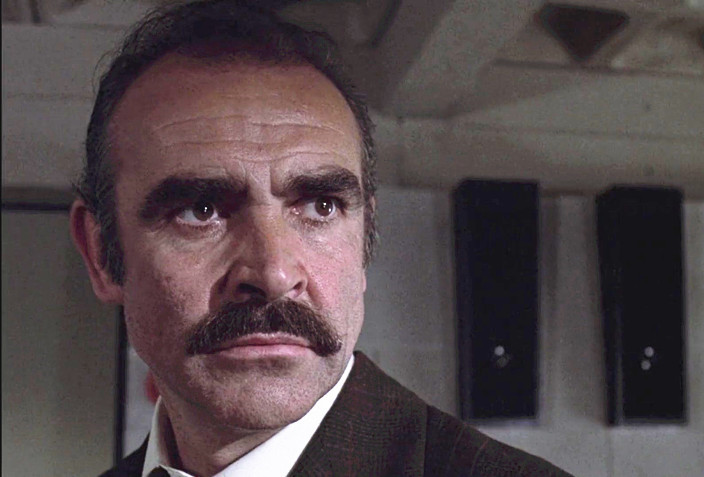
The 1970s were a golden age for the Hollywood thriller. In 1968, the MPAA film rating system replaced the Hays Code of self-censorship, allowing for a greater degree of sex and violence to be depicted on screen. Similar restrictions were relaxed by the British Board of Film Censors across the pond, and in both countries a young, new generation of filmmakers was being given a chance to make movies. The fallout from Watergate struck a mood of paranoia that informed some of the most celebrated thrillers of the decade, such as “The Conversation,” (1974), “The Parallax View” (1974), and “All the President’s Men” (1976). “The French Connection” (1971), “The Taking of Pelham One Two Three” (1974), and “Three Days of the Condor” (1975) are other hallmarks of the period.
In a decade that produced so many classic thrillers, there are bound to be some great suspense films that are overlooked. These are 10 thrillers that were either overlooked upon their release or, for one reason or another, remain underrated today.
1. Marathon Man (1976)
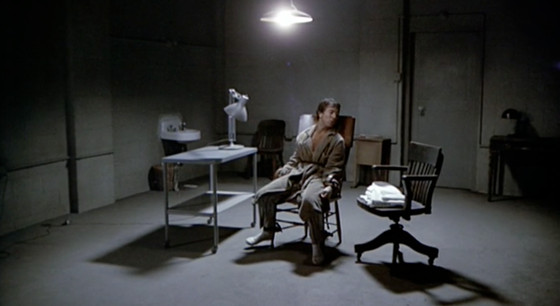
“Marathon Man” begins with a road rage altercation between a Yiddish-speaking Jew and an antisemtic, German-speaking motorist that turns fatal and sets up a key theme of the film: reckoning with history and the not-so-distant past of World War II. Based on a novel of the same name, “Marathon Man” stars Dustin Hoffman as Thomas “Babe” Levy, an everyman PhD student and runner who becomes embroiled in a conspiracy involving quasi-government agents and an infamous Nazi war criminal, Christian Szell, portrayed by Laurence Olivier, who must travel to the United States to collect his stolen diamonds. The film is set in the paranoid, hostile New York of “Taxi Driver” (1976”) and “Death Wish” (1974), and features scenes of extreme violence juxtaposed by the moral ambivalence of do-nothing onlookers.
While the plot of “Marathon Man” is fantastical and not without holes, the film works scene for scene, and features some of the most thrilling, gut-wrenching scenes of the thriller genre. One of the most memorable sequences in the film features the war criminal Szell pacing through Manhattan’s heavily Jewish Diamond District, becoming increasingly paranoid as he is slowly recognized by Holocaust survivors who, unlike other extras in the film, are not afraid to shout at evil when they see it. While Hoffman’s Babe begins the film as a hapless innocent, he grows through direct and decisive action. By the time he is face to face with evil he, like other survivors in the film, knows what to do — confront it head on, with the intensity of a marathon runner.
Though “Marathon Man” was successful upon its release, the film was largely ignored by the Academy Awards, save for a nomination for Best Supporting Actor for Olivier. The film has grown in notoriety in recent years, and in 2001 was included in AFI’s 100 Years…100 Thrills list.
2. The Silent Partner (1978)
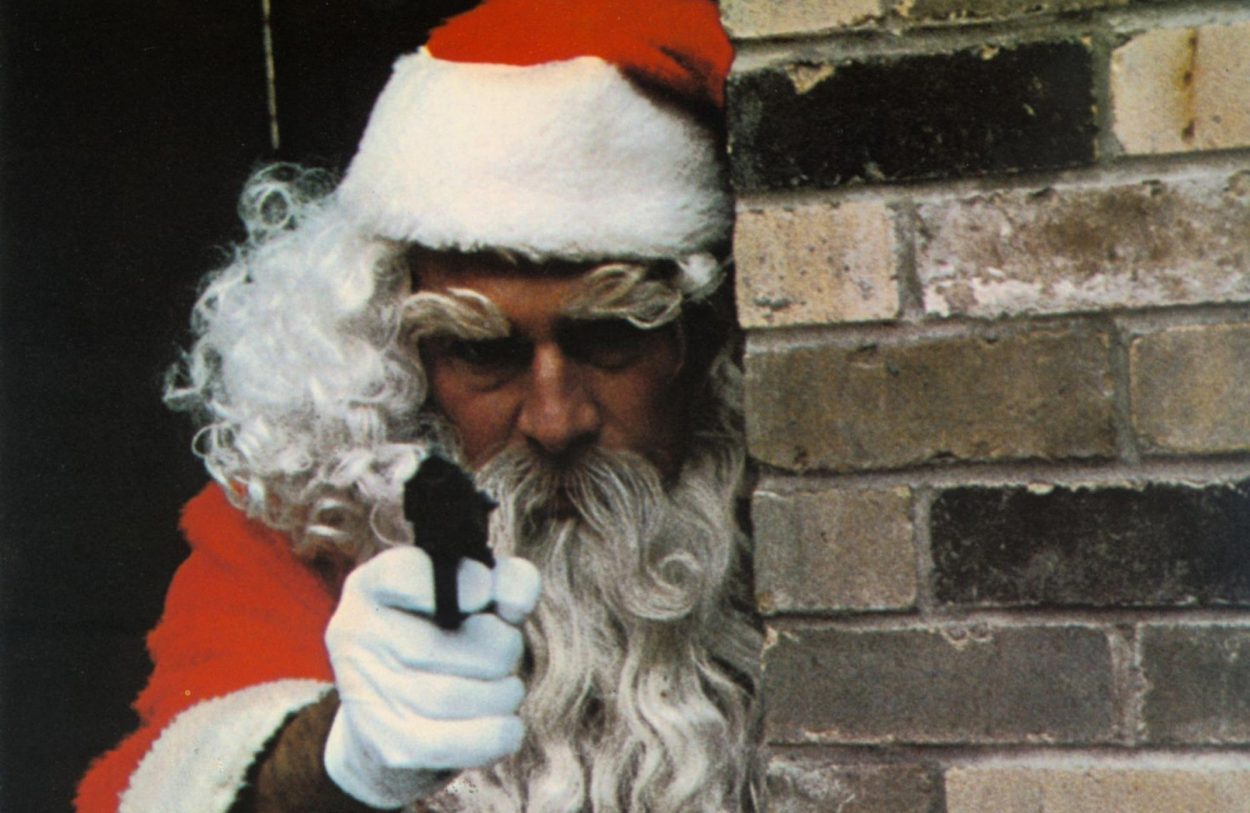
“The Silent Partner” is about a bank teller who, in anticipation of a robbery, skims $50,000 from a bank deposit — effectively cheating the eventual robber of his good fortune. When the robbery goes down and the load is light, the bank robber makes the teller for the one with his loot, setting off a cat-and-mouse game between a professional criminal and an office worker who may have a little more up his sleeve than he lets on.
The bank teller and “silent partner” of the film’s title is played by Elliot Gould, who, with a wry, unassuming nature, lets the opening premise of the movie unfold with minimal dialogue. While Gould may fancy himself the smooth criminal, he has found his match in Christopher Plummer, who plays the bank robber seeking to recoup the fifty grand. Where Gould is cool, Plummer is chilling, bordering on the psychotic. The interplay between the two leads develops through a complicated, intelligent plot that includes a romance between Gould’s teller and a coworker played by Susannah York. The film also features beautiful shots of Toronto landmarks, a score by Oscar Peterson, and a young John Candy.
Produced under Canada’s “Capital Cost Allowance” program — a tax incentive program that allowed investors to deduct 100% of their investment in a film, regardless of (and often at cross purposes with) a film’s success — “The Silent Partner” did little business in the United States upon its release, and remains in relative obscurity today.
3. The Friends of Eddie Coyle (1973)
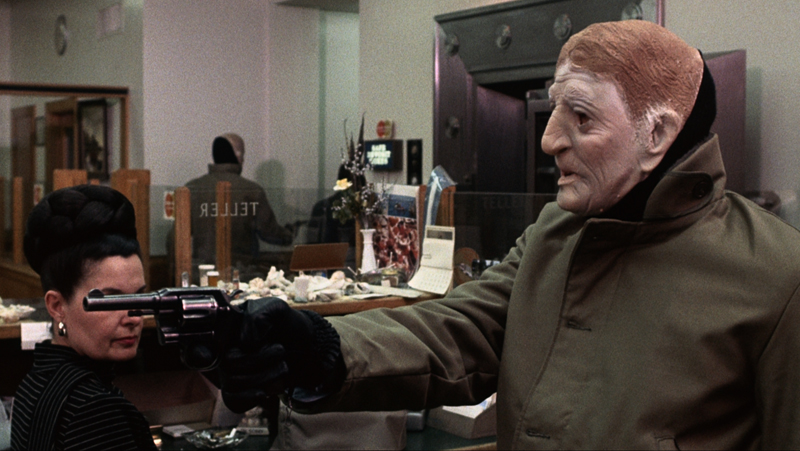
“The Friends of Eddie Coyle” tells the story of Eddie Coyle (Robert Mitchum), a weary, over-the-hill gunrunner who must rethink his life and loyalties as he weighs the prospect of snitching on his “friends” against several years of jail time in a New Hampshire prison. Through a succession of sit-downs and meetings, Coyle and his associates barter for information, guns, and nothing less than their own lives.
Unlike other flashier, romanticized gangster films of the era, “The Friends of Eddie Coyle” is told with a realism that reveals the loneliness, ugliness, and fear at the heart of the hard-living characters that populate the lower rungs of the criminal underworld. Most of the film takes place in broad daylight, set amongst the blight and decay of gritty 1970s Boston.
“The Friends of Eddie Coyle” has the melancholy of an art film, and a kinetic tension that hangs on every word of dialogue. While director Peter Yates’ prior two crime films, “Bullitt” (1968) and “Robbery” (1967) feature high-octane car chases and shootouts, only a few gunshots are fired in “The Friends of Eddie Coyle.” But while there is little over-the-top action, the threat of violence looms throughout, paced by the languid speech of Robert Mitchum in one of the best performances of his career. The film also features a bank robbery sequence and Robert Boyle as an unflinching bartender and hitman.
4. Black Sunday (1977)
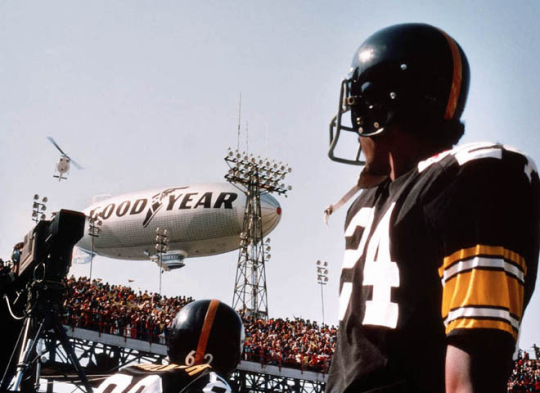
Directed by John Frankenheimer and produced by Robert Evans, “Black Sunday” is a political thriller centered on the terrorist plot to detonate a blimp full of explosives at Super Bowl X. The plot is orchestrated out by the Palestinian terrorist group Black September, whose real-life massacre of Israeli athletes at the 1972 Summer Olympics in Munich served as an inspiration for the story.
The film centers on femme fatale Palestinian terrorist Dahlia Iyad (Marthe Keller) and the PTSD-suffering blimp pilot (Bruce Dern) who she seduces into carrying out the attack. The pilot, Captain Michael Lander, was tortured for years as a POW in the Vietnam War, and can sympathize with Iyad in her hatred of American imperialism. As Iyad and Lander plan their attack, they are tracked by a team of FBI agents, leading to a number of memorable action sequences across a variety of globetrotting locations.
The film culminates in one of the most grandiose action sequences of the era, involving a helicopter-blimp chase over a crowd of tens of thousands spectators. Aided by a tense John Williams score that helps keep the film on a tight pace, “Black Sunday” is a solid thriller that seriously engages with the politics of the era.
5. The Boys from Brazil (1978)
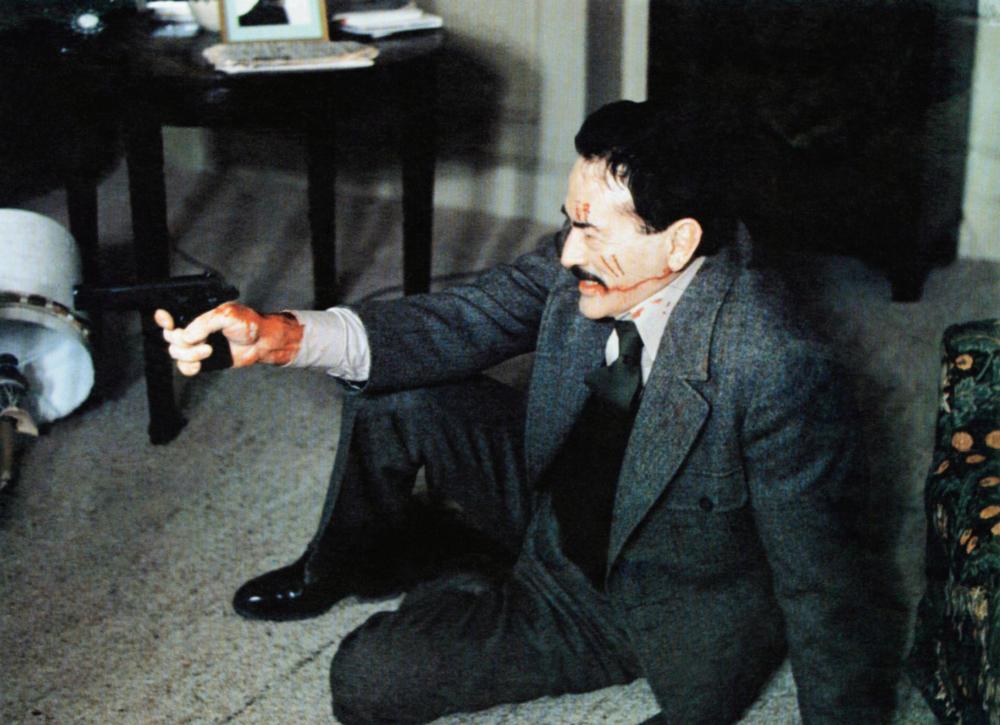
Based on a novel of the same name, “The Boys from Brazil” follows aging Nazi hunter Ezra Leiberman (Laurence Olivier) around the world as he slowly uncovers a global plot set forth by Nazi war criminal Josef Mengele (Gregory Peck, playing wonderfully against type) to resurrect the Third Reich. The main, mysterious element of Mengele’s plan is the assassination of 94 men, mostly civil service workers around retirement age and seemingly innocuous, across nine different countries. Through Lieberman, the audience learns of even more similarities among the targets — many were abusive or neglectful towards their wives, and all have remarkably similar-looking sons, whose jet-black hair, icy blue eyes, and cold demeanor bear an uncanny resemblance to someone quite familiar to the Nazi hunter….
“The Boys from Brazil” fantastically merges elements of thriller and science fiction, and poses philosophical questions about the morality of genetic engineering and the nature of evil. And while the film’s story was criticized as “dumb” and “far-fetched” upon its release, recent events — including developments in reproductive cloning and the rise in right-wing nationalism in Europe — make “The Boys from Brazil” more relevant than ever. The film garnered three Academy Award nominations, including a nomination for Best Actor for Laurence Olivier.